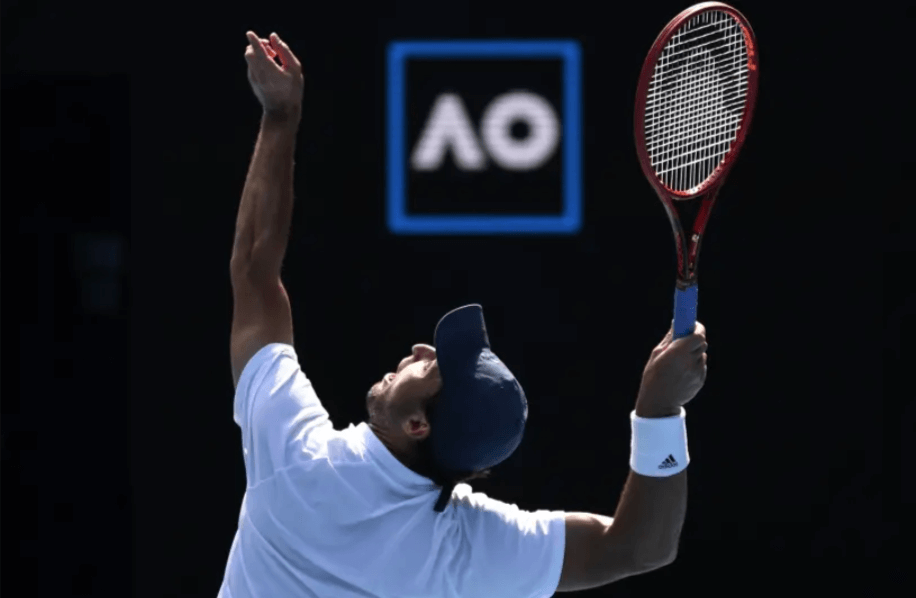Original Article Published on The JP
Aaron Krickstein’s impressive records still have not been broken.
When many of the world’s top tennis players arrive in Israel for the ATP 250 Tel Aviv Watergen Open September 26-October 2, they will likely focus on the singles and doubles draws, the one million dollars in prize money and hopefully on the historical significance of Israel for the world’s major religions.
Few players or fans are likely to know the tournament’s important place in tennis history.
Tennis legend Jimmy Connors won his final career singles title at the Tel Aviv Open in 1989. But perhaps even more significant is a record broken at the tournament in 1983 when Jewish teenager Aaron Krickstein became the youngest person to ever win an ATP tennis event.
Krickstein, now 55 and still very involved in both the tennis and Jewish worlds, won the Tel Aviv Open at the very young age of 16. Krickstein is also the youngest player ever to break the top 10, a feat he achieved at age 17.
Krickstein’s impressive records still have not been broken. Krickstein recently spoke with The Jerusalem Post from his office at the St. Andrews Country Club in Boca Raton, Florida, where he has served as director of tennis for the past 21 years.

“I still play some exhibitions, corporate events and do appearances, but I am no longer playing senior events. I am too busy with my responsibilities here.”
Aaron Krickstein
“I still play some exhibitions, corporate events and do appearances,” reported Krickstein. “But I am no longer playing senior events. I am too busy with my responsibilities here.”
Krickstein directs all tennis programs and events at St. Andrews and oversees their 14 tennis courts.
Krickstein enjoys reminiscing about what he describes as “a very good career.”
Krickstein’s background in playing tennis
Krickstein was born in Ann Arbor, Michigan, began playing tennis at age six, winning the US National Under-16 championship in 1982.
After turning pro at age 16, Krickstein soon thereafter won the Tel Aviv Open in both 1983 and 1984.
“It was very exciting. That first event in Tel Aviv was very special.”
Krickstein played professionally from 1983 through 1996 and achieved a career-high ranking of No. 6 in the world in 1990.
His career, which was plagued by injuries, included winning nine tournaments and being runner-up 10 times. He also played on the United States Davis Cup team from 1985 to 1987, and in 1990. Krickstein’s wide range of injuries included stress fractures in his feet, knee and wrist issues and injuries from a 1987 car accident.
“Injuries caught me at the end. I had quite a few problems at age 28. It wasn’t supposed to happen,” lamented Krickstein, referring to what effectively became the end of his career. Though he added: “I never officially retired!” noting that he tried to come back at age 34.
Krickstein played against all of the greats of his era, including John McEnroe, Stefan Edberg, Michael Chang and Connors. While Krickstein never won a Grand Slam tournament, he reached the semifinals of both the 1989 US Open and the 1995 Australian Open.
Perhaps his most famous match of all time took place on Labor Day at the 1991 US Open against Jimmy Connors. Krickstein was up two sets to one and was ahead 5–2 in the fifth set. He eventually lost the four hours and 41 minute match in a tiebreaker.
ESPN produced a “30 for 30” film entitled, “This is What They Want.” It is an examination of Connors’s career told through the lens of that epic Connors-Krickstein 1991 US Open match. It has become one of the most viewed matches of all time, partly as it was regularly shown at the US Open during rain delays in the era before the retractable dome.
“The US Open was my favorite Grand Slam,” Krickstein said. “I did my best there. I had some pretty big victories.”
Losing a five setter, as he did with Connors, was uncharacteristic of Krickstein. Krickstein won 27 of his 35 career matches that went to a fifth set. He was affectionately known as “Marathon Man” throughout his career for his uncanny ability to come back and win five setters after being down two sets to zero.
Krickstein and Connors hadn’t spoken much after that match. Then, Krickstein reports, “my club president asked me to reach out.”
Krickstein invited Connors to what became known as “The Reunion Match.” It took place in 2015 in front of 750 people. “[Connors] was gracious and greeted all of the members and stayed all day and all night. I waited until he had two hip replacements and was 65 to beat him.”
Krickstein won the friendly pro set 8–5.
Krickstein and his club have been supporters of Israel and have hosted benefits for ITEC, the Israel Tennis and Education Centers over the years. In 2012, the St Andrews country club community raised money and made a four-year commitment to sponsor a tennis tournament in Israel in Krickstein’s honor. The International Tennis Tournament in Honor of Aaron Krickstein took place in Israel and attracted dozens of teen players from Israel and 14 European countries.
In 2019 and 2020, Krickstein participated in Pro-Am events on the grounds of the Delray Beach Open in Florida. They were hosted by ITEC. Other Jewish tennis pros, including Anna Smashnova, Jesse Levine, and Andy Ram, also participated in the ITEC events.
Krickstein’s connection to Israel and Jewish causes are not accidental.
“For me, Jewish tradition means a lot. I have a long family line and an interesting family tree,” Krickstein proudly noted. “My grandfather comes from a long line of rabbis. There were three generations of rabbis, then my dad was a doctor, then me, a tennis player!”
Krickstein fondly recalls his visits to Israel and his years at the Tel Aviv Open.
“The Israel tournament will always have a special place for me… My mother and father came with me on that first trip to Israel in 1983. They got to enjoy the moment with me.”
Krickstein has enjoyed visiting Jerusalem, the Galilee, the Dead Sea and other “major sites” though he admits that he “doesn’t remember much from that first trip at age 16.
“I was all-in on tennis.”
Krickstein continues to follow tennis and watched the recent US Open.
“Taylor Fritz is pretty talented and Tommy Paul is very good,” he assessed. “US tennis needs someone to break through.”
Despite Krickstein’s ongoing enthusiasm for tennis, he will not be attempting a comeback at the 2022 Tel Aviv Watergen Open, which returns to Israel after a long hiatus.
The Tel Aviv Open was held from 1978 through 1981 and 1983 through 1996 in Israel. In 1990 and 1991 the tournament was known as the Riklis Classic before reverting back to its former name, the Tel Aviv Open. The tournament was scheduled to resume in Israel in 2014 but was canceled due to security concerns arising from tensions in Gaza.
This year’s Tel Aviv Watergen Open will begin on September 26 and take place at Expo Tel Aviv In northern Tel Aviv. Top-ranked participants include Novak Djokovic, winner of 21 Grand Slam singles titles, Dominic Thiem, Marin Cilic and Argentine-Jewish player Diego Schwartzman. The tournament will offer $1,117,930 in total prize money.







